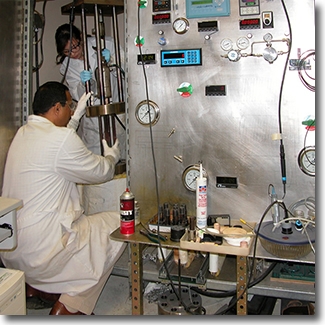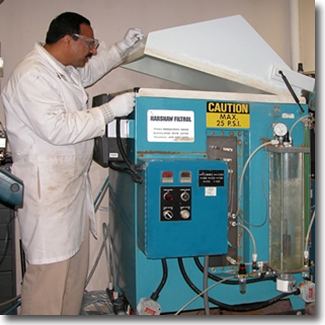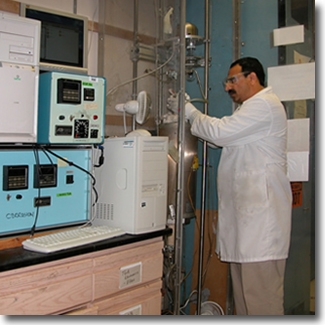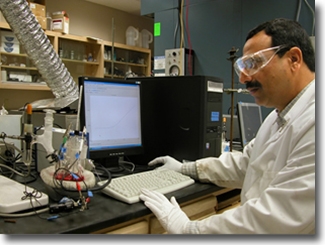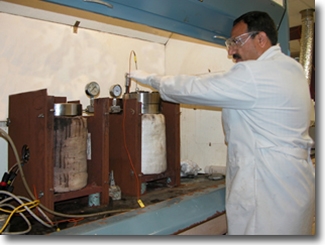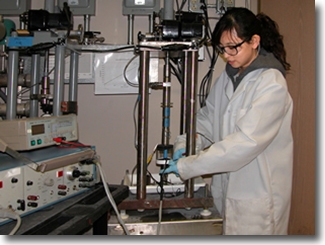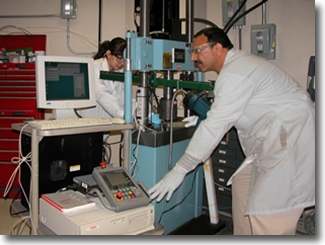Corrosion Testing
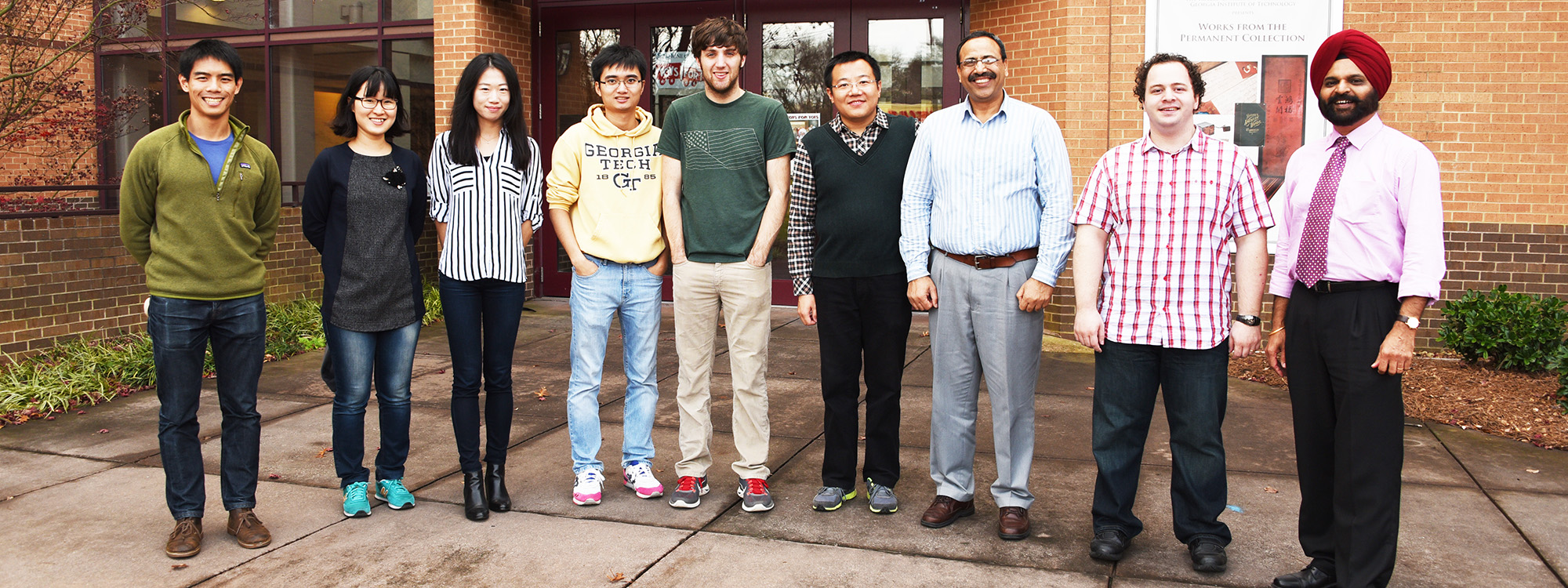
Corrosion and Materials Chemistry Research Laboratory
Reliable performance of materials is very important for any industrial process, and especially for the manufacture of high-quality products in the chemical and pulp & paper industries. Material selection is generally based on the required material properties, low initial capital investment, and minimum maintenance. Changes in the process parameters to improve products can often lead to higher corrosion susceptibilities of the plant materials. Moreover, with increase in capital cost, there is pressure to extend the life of existing plant equipment beyond its original design life. Corrosion and materials engineers are also playing a key role in selecting, maintaining, and modifying materials for changing needs for every industry. Corrosion science and engineering research includes understanding the basic mechanisms involved in material degradation in given environments and using that knowledge to develop a mitigation strategy against environment-induced failures. The corrosion laboratories at RBI offer materials testing and fatigue testing of duplex steels.
Research activities of the Corrosion and Materials Chemistry Research Laboratory (CMCRL) at the School of Materials Science and Engineering at the Georgia Institute of Technology are focused on corrosion, stress corrosion cracking, high temperature oxidation, and other forms of environmentally induced degradation of metallic materials. Analytical and characterization tools needed for corrosion research are either available in our laboratory or in the School of Materials Science and Engineering at Georgia Tech. Software for thermochemical calculations is used for thermodynamic predictions and modeling of corrosion processes.
Equipment
- Slow strain rate rig with recirculation loop autoclave for stress corrosion cracking tests in boiler environments
- Electrochemical tests for corrosion
- Autoclaves for high temperature high pressure corrosion tests
- Slow strain rate rigs for stress corrosion cracking
- MTS for corrosion fatigue and mechanical behavior tests
- Salt fog chamber for atmospheric corrosion tests
- Thermal balance for high temperature gaseous corrosion test
How to Request Testing
- Send e-mail to preet.singh@rbi.gatech.edu with details regarding the nature of the request, the tests required and the problem or issue that is to be resolved. Provide billing contact name and address.
- Samples via courier (UPS, FedEx, DHL, etc.) may be sent to the attention of:
Preet Singh
RBI at Georgia Tech
500 10th St. NW
Atlanta, GA. 30318-5794If sending by U.S. mail replace the ZIP code with 30332-0620
- A Purchase Order for an amount to cover the costs for the requested testing is required.
Georgia Institute of Technology
Bursar’s Office/A/C Receivable
225 North Avenue, NW
Lyman Hall, Suite #111
Atlanta, GA 30332-0257A copy of the Purchase Order sent via fax to 404-894-4778 is requested.
- The sender should have the name of the appropriate RBI contact and phone number on their invoices/P.Os
- Receipt of samples coupled with e-mail detailing testing requirements and any background information initiates the generation of an internal project and officially starts the project.
- The work request is queued with others in order of time of receipt of samples. Work requests may be expedited under special circumstances.
- A report will be issued within the agreed turnaround time.
- Bills are sent separately by mail through the GT accounting system.
CORROSION CONTACT
Preet Singh
Professor
Materials Science and Engineering
preet.singh@rbi.gatech.edu
(404) 894-6641
Profile Page
Corrosion Equipment Listing
|
Slow strain rate rig with recirculation |
Salt fog chamber for atmospheric corrosion |
Thermal balance for high temperature |
|
Electrochemical tests for corrosion |
Autoclaves for high temperature high |
Slow strain rate rigs for stress corrosion |
|
MTS for corrosion fatigue and mechanical |

